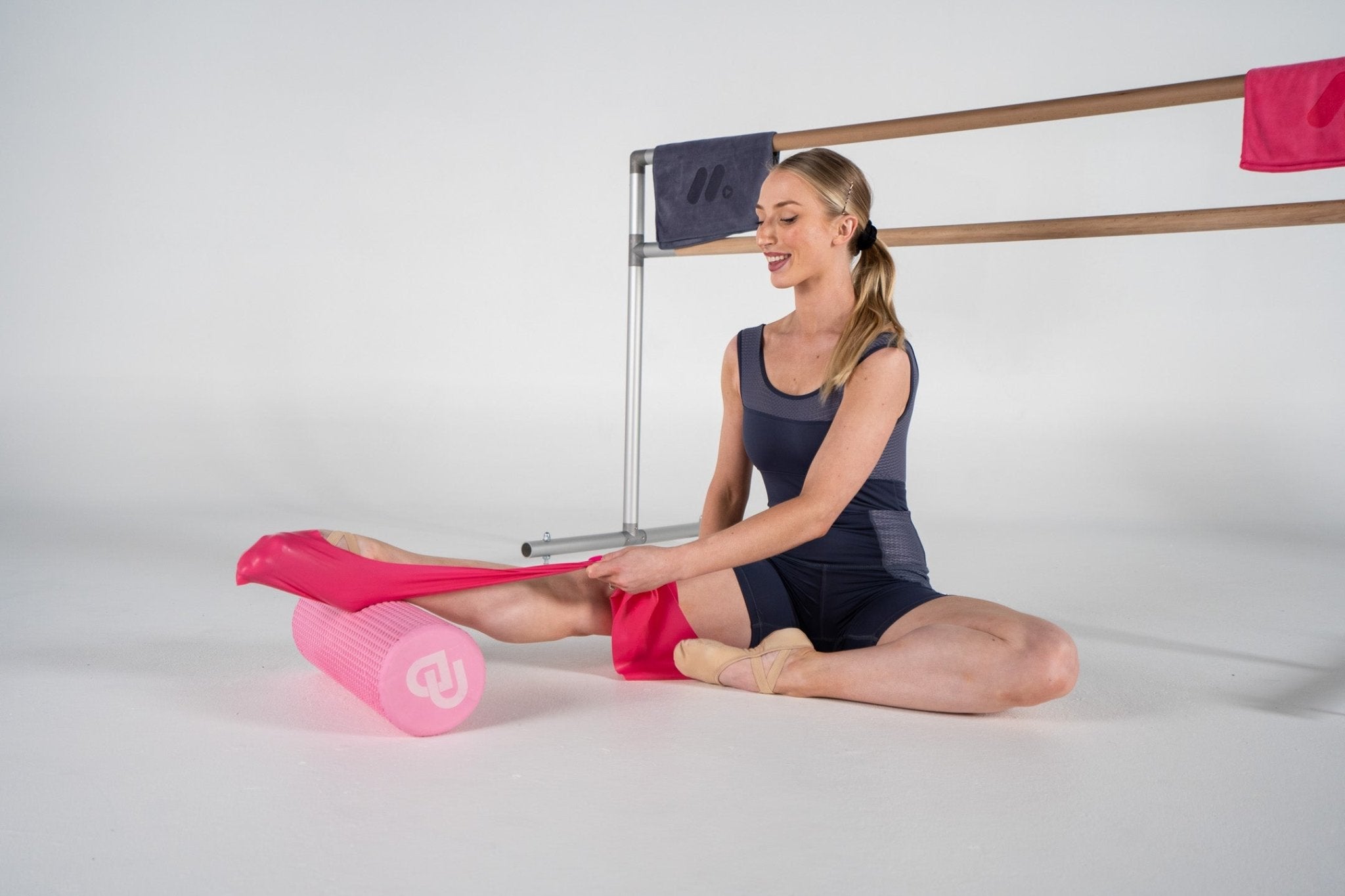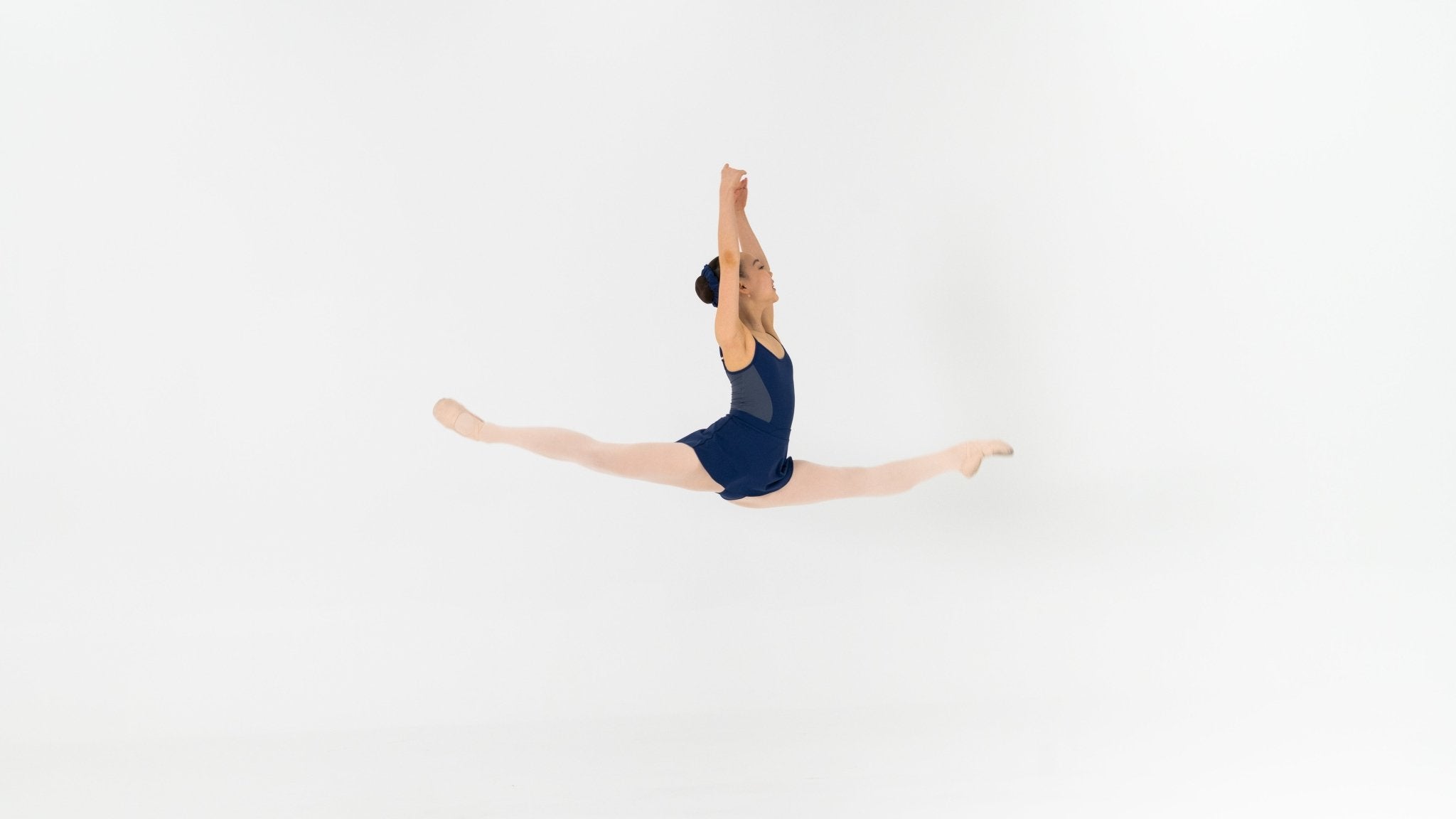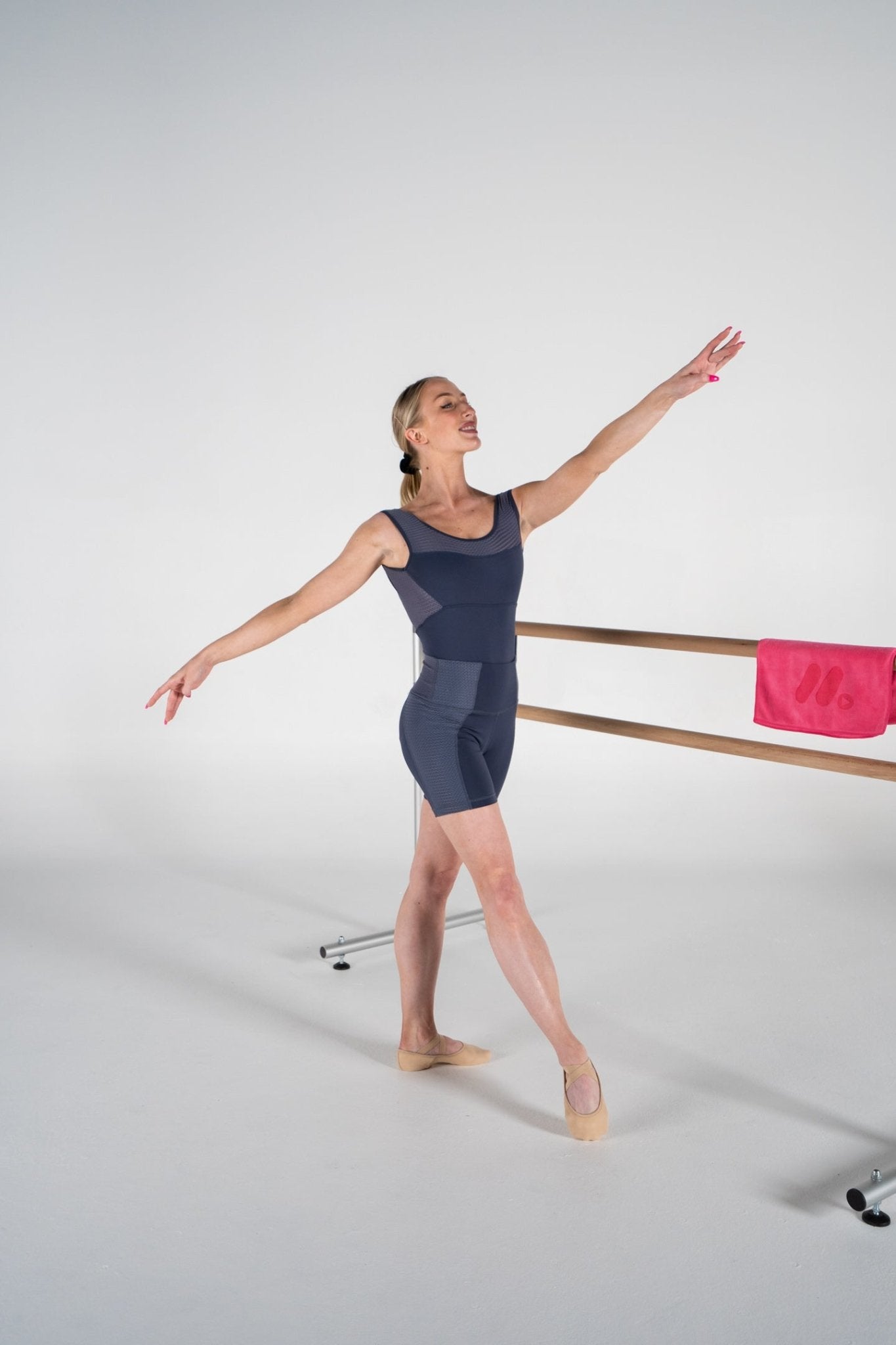DANCING EN POINTE

While dancing en pointe is a defining moment for any dancer, progressing to this next stage of your dancing should depend solely on your strength and coordination, so you can develop this new aspect of your technique safely! Age or level alone should never determine when you begin pointe work.
It is absolutely imperative that you have a solid understanding of ballet technique before progressing onto pointe, whether you are a young or an adult dancer aiming to dance en pointe. Building your strength and technique in order to dance en pointe is an excellent goal to work towards, but there is no need to rush - aiming to dance on pointe too early in your dance training could have serious consequences for your health!
Pointe work requires a lot of strength, especially in your lower legs. You are holding your entire body weight on a very small paper mache box. so strengthening your:
- Calves
- Ankles
- Toes
As well as improving your stability is a must, in order to safely maintain your weight on the tip of your toes.
While coordination may be one of the most important attributes to dancing in general, dancing en pointe requires a different level of coordination than we require to dance on flat. You may be turning on one leg, completing fast jump sequences and multiple turns in a row while changing directions in flat shoes already, but when dancing en pointe, your centre of gravity will shift, requiring a whole new level of coordination that you will need to gradually build!
Developing this strength and coordination takes time, which is why I would suggest dancers be above the age of twelve and have at least more than five years of ballet experience before they progress to pointe work. Preparing the right muscle groups correctly is absolutely essential to a safe transition into pointe work.
Your calves will play a very important role in controlling movements on and off pointe. Without significant calf strength, it would be extremely hard to have the desired smooth transition on and off your pointe shoe box.
On our CDW App, complete: Calf Rises, Calf Rises in Powerband & Calf Rises on a bent knee in the ‘Pre Pointe/Pointe’ category to develop strong and reactive calf muscles.
Working on strength and mobility in your toes is necessary for pointe work. This area is often forgotten, but using your metatarsal area correctly will help you create articulate feet, as well as protect you from injuries.
Complete: Doming Separation, Power Ball Push Downs with Foot in the ‘Foot Strength’ category to develop power in your forefoot area.
Strong ankles are another vital area for pointe work. Keeping the correct alignment in your shoes will help prevent injuries that can occur from sickling, fishing, pushing too far forwards over your box, or sitting back into your shoe. Complete: Fish my foot in power band, power ball ankle presses & calf rises in power band located in the ‘Pre Pointe/Pointe’ category to improve your ankle stability for pointe work.
Dancing en pointe is such an iconic aspect of ballet and will without a doubt be one of the most rewarding achievements in your dance training. Any dancer will one day be able to begin their pointe work journey once they have achieved the necessary experience, strength and coordination. Preparation is key, so applying these tips will help you be one step closer to dancing in your first pair of pointe shoes!
CD X



